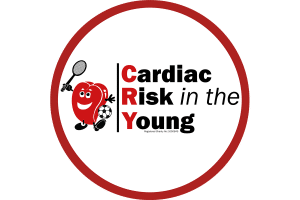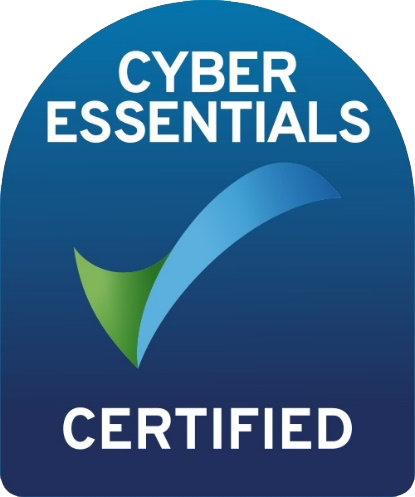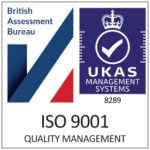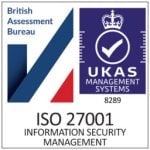Through a collection of video clips, cardiologist Professor Sanjay Sharma has answered some of the most frequently asked questions (FAQs) about young sudden cardiac death and heart screening.
Click on any question to open a new window where you can hear (and read) Professor Sharma’s response.
Why isn’t there a screening near me?
CRY screenings are generally funded by Memorial Funds which have been set up following the tragic death of a young person due to a young
I have not been successful in booking a screening. Why do CRY screenings book up so quickly?
Unfortunately we can only hold screenings when and where we are resourced to do so, and that can mean there are some areas of the
Will I be able to talk to a cardiologist on the day?
We aspire to speak to all young individuals having cardiac screening because there’s a lot of anxiety associated with screenings. Unfortunately, some of these screening
Once I have been screened will I need to be screened again?
Screening with an ECG is aimed at identifying people with cardiomyopathies or electrical disorders of the heart. In answer to the question, electrical abnormalities can
My daughter only wants to see a female technician. Can this be arranged?
At Cardiac Risk in the Young, we have many technicians, of which I’d say 60 or 70% are female. There are no issues at all
How many people need heart scans?
In the CRY screening programme, following a health questionnaire and an ECG, between four and five percent of individuals require a heart scan. We subject
When I was younger I was told I have a heart murmur. Does that matter?
Heart murmurs can be due to numerous things. They can be due to a problem with the heart valves, they may be due to a
What if I have a family history of ischemic heart disease?
A family history of ischemic heart disease may be important in the assessment of a young individual for conditions that cause sudden cardiac death. You
What if I have a family history of familial hypercholesterolemia?
A family history of hypercholesterolemia is very, very important. Familial hypercholesterolemia means that an individual has a very high circulating cholesterol concentration. Cholesterol is a
I have a family history of high blood pressure. Does that matter?
Hypertension or a high blood pressure is usually familial, cheap by that I mean it runs in families. If you have a parent that has
You mention there are sometimes symptoms. How important are symptoms?
Symptoms that an individual perceives are obviously important – they may be the first clue to someone harbouring a potentially serious condition. There are several
When I was younger I was told I have a heart murmur. Does that matter?
Heart murmurs can be due to numerous things. They can be due to a problem with the heart valves, they may be due to a
Can I still have the test if I have a hangover?
A hangover does not preclude ECG testing but I suspect any individual that’s hungover will also probably have a rapid heartbeat because one of the
Why doesn’t CRY screen people under 14?
Our lower age limit for screening at CRY is 14 years of age. This is because we believe that most people at the age of
Can I have an ECG if I’m pregnant?
The ECG is a very safe test and there are no issues with ECGs and pregnancy. The ECG does not involve any radiation or any
If I don’t do much sport will I still be able to get tested?
At CRY, we offer all young, apparently healthy individuals the opportunity to be screened. The screening programme is not just biased to people who play
My child is not 14. Can he / she be screened?
Screening for under 14’s is possible but there are some issues with screening people who are under 14. The first is that below the age
Why doesn’t CRY screen people over 35?
If an individual is aged over 35 and wishes to be screened for conditions causing sudden cardiac death then I’m afraid that Cardiac Risk in
After looking at my ECG the doctor now wants to do an ECHO. Is something wrong?
The ECG is done primarily to look for disorders of the electricity of the heart. However, the ECG can also provide important information regarding the
My son or daughter needs a repeat. Should I be worried?
It is common practice for those individuals who have been screened under the CRY screening programme to be called back for a repeat screen. This
Why are some people asked to have an ECHO?
Assuming that the ECG has been read by a cardiac expert, most people who have an ECG will not require any further investigations. In some
My ECG is normal but I still have symptoms. What should I do?
A normal ECG usually excludes major problems it suggests that there’s an intermittent heart rhythm disorder that may not be picked up on an ECG
Why do I need a heart scan?
A heart scan is effectively another term for a cardiac ultrasound that is useful for identifying cardiac abnormalities such as problems with the valves of
What happens if something is found on my ECG?
There’s about a 4% chance that something will be found on the ECG. If we do identify an abnormality then we would recommend further investigations
If something is found, how will this affect insurance or mortgages?
The impact of cardiac disease on insurance or mortgage is entirely dependent on the type of cardiac abnormalities. The identification of a cardiomyopathy or an
Will my doctor be kept informed?
We screen several thousand young individuals per year and our current practice is to inform the individuals screened, or his or her parents if they’re
Will I have to stop playing sport?
The question about whether an individual can continue to play sport after a screening depends on what we identify. If a diagnosis of cardiomyopathy or
Is every condition you find curable?
Most conditions that cause sudden cardiac death in young individuals are not curable. However, we can identify individuals who are likely to die and reduce
What will happen if I am found to have a condition?
If a condition is identified at the CRY screening programme, the individual will be referred to a cardiologist that has experience in managing conditions that
If I need to be referred do I have to travel to London?
Following a cardiac ECG screening, between four and five percent of individuals will require further investigations. We always take the opportunity of offering these investigations
I’m over 35. Where can I get tested?
If someone is aged over 35 and wishes to have cardiovascular screening for conditions that can predispose to sudden death then that screening would be available
My GP doesn’t take my concerns seriously. What can I do?
There are certain symptoms and certain situations that should be taken seriously in young people. One of the major problems is that young people are
Can my GP do the test?
At CRY, the screening programme involves a health questionnaire and a 12 Lead ECG. The health questionnaire refers to symptoms suggestive of cardiac disease and
Can I get this done on the NHS?
Screening for conditions causing sudden cardiac death is not offered on the National Health Service if an individual does not have any symptoms or a
Can I get the same tests done locally, privately?
An ECG can be performed on the National Health Service in individuals who have symptoms suggestive of cardiovascular disease or a family history of premature
Do these tests identify all people at risk?
The current screening programme, which involves an ECG and a health questionnaire, will not identify all conditions that cause sudden cardiac death. There are conditions
How many times should a young person have their heart tested and when should the first test be done?
This is a question which is often asked. The answer is not straightforward and in all likelihood it will change as we learn more about
Why aren’t all schools equipped with a defibrillator?
If I had my way, all schools should be equipped with a defibrillator. Although sudden death in young people is rare, it does occur and
What is an ICD? What does it do?
An ICD stands for an internal cardioverter defibrillator. This is a device that is implanted into the body under local anaesthetic . The patient usually
Why is it recommended that elite athletes have both an ECG and an ECHO?
Most people that play sport are evaluated with a simple ECG and a health questionnaire. However, the very elite athletes normally undergo an ECG and
Would the ECHO pick up anything the ECG would miss?
The ECG is very good at picking up electrical faults of the heart but the echocardiogram is a much more detailed investigation that looks at




